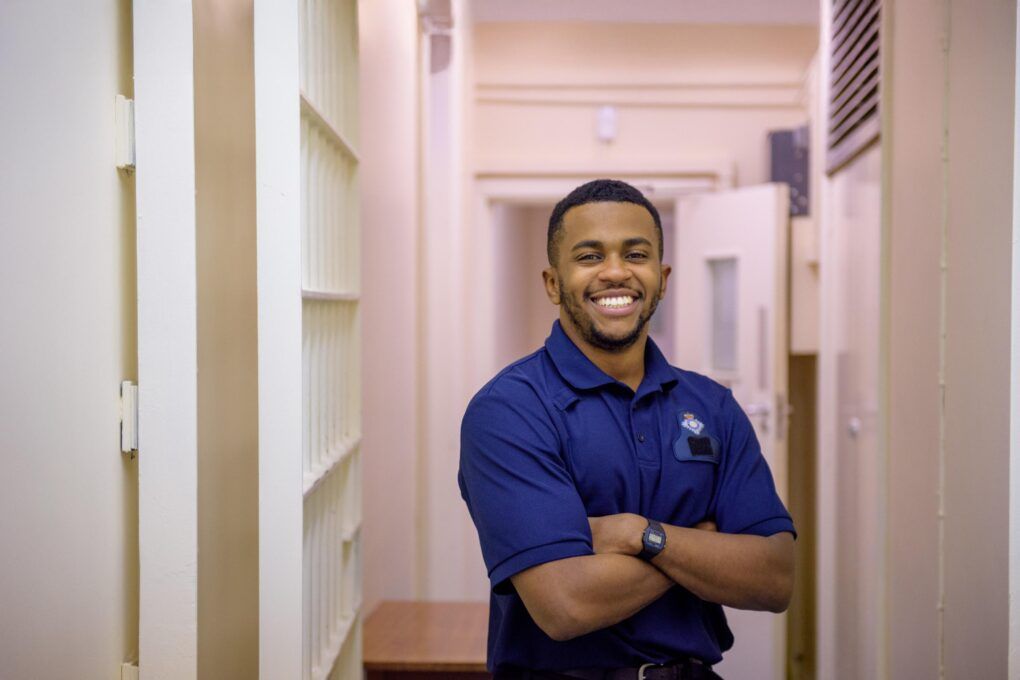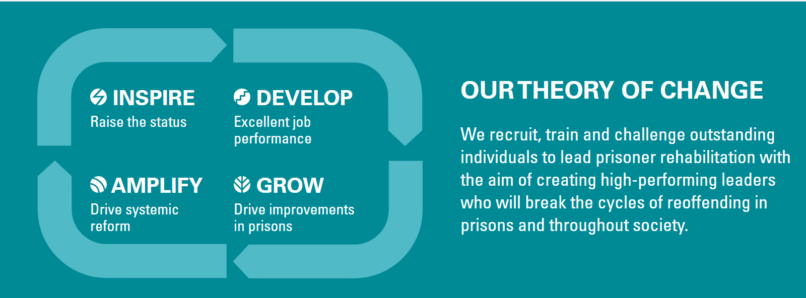Since 2017, Unlocked Graduates has placed nearly 900 top graduates in 38 different prisons across England and Wales. We are creating a generation of leaders who believe that rehabilitation is possible.

Our Impact
Unlocked Graduates exists to develop outstanding leaders to break cycles of reoffending in prison and throughout society. Since 2017, we have recruited nearly 900 top graduates and placed them in some of the toughest prisons in England and Wales on our award-winning graduate leadership development programme.
Our participants and Ambassadors are driving rehabilitative change on the landings and helping to break cycles of reoffending.
Since I first discovered Unlocked Graduates, I’ve been an enormous fan of the scheme. I think it’s a way of getting some brilliant, talented people into our prisons, and when I walk around our jails, I see the impact that [they] are having.
Charlie Taylor, His Majesty’s Chief Inspector of Prisons
What have we achieved?
Unlocked Graduates is having a real impact in prisons across the country. We are a global leader within the criminal justice space, and our unique approach to the recruitment, retention and development of prison officers is recognised in the UK and internationally.

Our award-winning graduate programme is inspiring change across the prison system and creating a new generation of prison leaders.
Nearly 900 future leaders recruited by Unlocked
Over 125,000 prisoners reached since 2017
Participants and Ambassadors of the Unlocked programme have reached over 125,000 prisoners around the country, building transformational relationships and breaking cycles of reoffending.
£59 saved for every £1 spent on the Unlocked programme
Independent economic analysis commissioned by Unlocked Graduates provides indicative evidence that for every £1 spent on the Unlocked programme, £59 is saved for society over a five-year period.
3/4 of Ambassadors continue to work directly towards our mission
Retention for those who join the prison service through the Unlocked programme remains significantly higher than those who join via the standard entry route. Three quarters of those who complete our programme continue to work towards our mission of breaking cycles of reoffending in their primary role after graduating the Unlocked programme, with many progressing into operational leadership positions on the landings.
£1m+ of fundraised income invested in frontline innovation projects
We have invested in excess of £1m of fundraised income in frontline innovation and accelerator projects, including projects led by our participants as part of our Innovation Acceleration Programme (IAP).
We are committed to measuring the impact that our solutions are having in prisons in order to understand the factors that contribute to the effective training and development of outstanding prison leaders to break cycles of reoffending. We are determined to share our learnings with colleagues across the criminal justice system in the UK and internationally in order to drive system change.
Previous
Who We Are